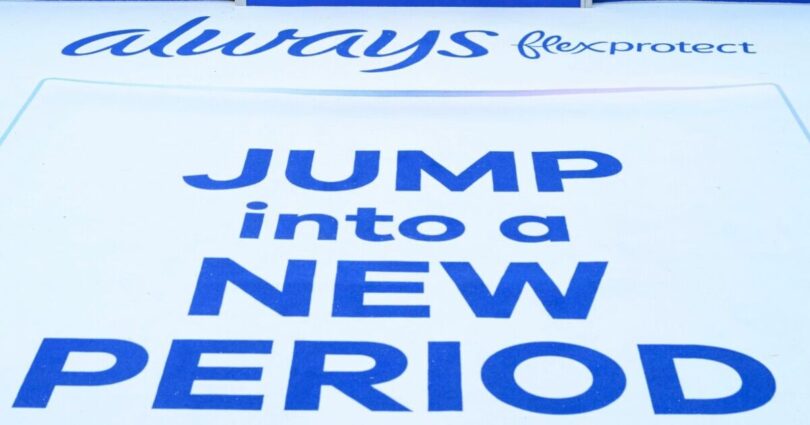A poll of 1,000 women who menstruate found 81 per cent feel anxious about leaking during their period and 65 per cent experience some level of pad discomfort.
As a result, 86 per cent admitted to taking significant steps to avoid ‘period mishaps’, including avoiding light-coloured clothing and factoring in regular toilet breaks to check their pad.
The study found 64 per cent believe it is normal to modify their behaviour when on their periods to avoid leaks and pad discomfort.
Two thirds say the main contributing factor of ‘pad discomfort’ is because they can feel their pad all the time. Almost half regularly experience their pad bunching and 53% struggle to keep it in the same place.
This then makes them feel hot or sweaty and means they have to check or adjust their pad frequently (44%), or walk and sit in a particular way (25%).
The research was commissioned by Always to celebrate their FlexProtect range made with SmartFoam technology. A spokesperson for the period protection brand, said: “We want women to have reliable protection that makes them feel as comfortable as possible whilst on their period.”
The survey further discovered that 37% have clothing they would only wear when on their periods to alleviate anxiety around leaks and pad discomfort. This included wearing dark colours only, as well as full coverage underwear to keep a pad in place.
Of those who took part in the study by OnePoll.com, 19% always or often suffer from a leak during their time of the month. To help get around it a quarter double up on pads and a third always carry around a spare pair of underwear.
A spokesperson for Always, which is encouraging women to jump into a new era of period protection with their biggest period stunt – a giant bounce pad at Westfield London, added: “By normalising the conversation, we hope to enable girls and women to feel confident in managing their periods with suitable solutions that offer the right protection.”
Source link








